Understanding Corruption in ASEAN: A Brief 101 – “What is Corruption?”
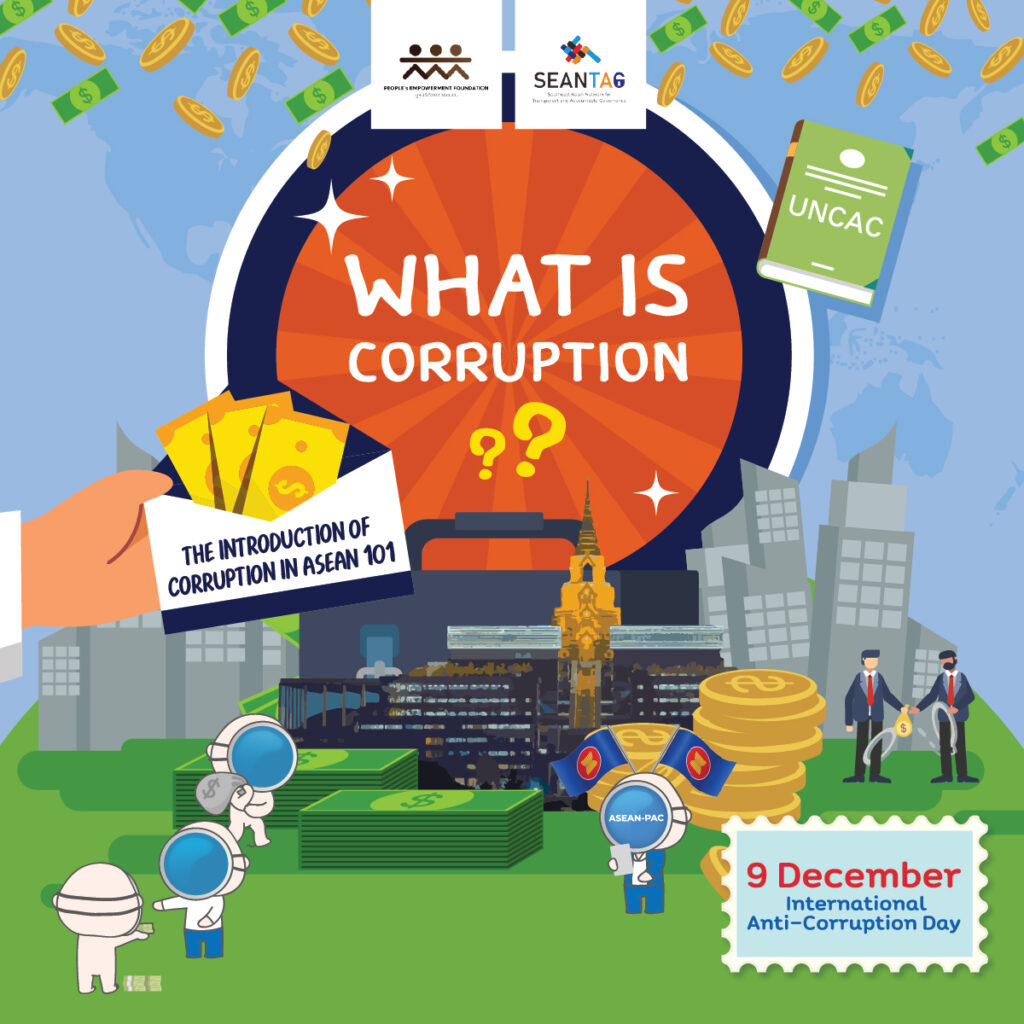
December 9 of every year marks International Anti-Corruption Day, reminding all United Nations member countries of the importance of addressing and combating corruption worldwide.
The definition of “corruption” is interpreted and defined differently in various national, geographical, and social contexts. In Thailand, the term corruption is often mentioned in political contexts and is frequently used to attack and undermine the credibility of opposing parties.
But what else do we truly know about corruption?
Join us in exploring and understanding corruption at the international level and regional ASEAN level. What do we know and what do we not know about how corruption affects us directly and indirectly?
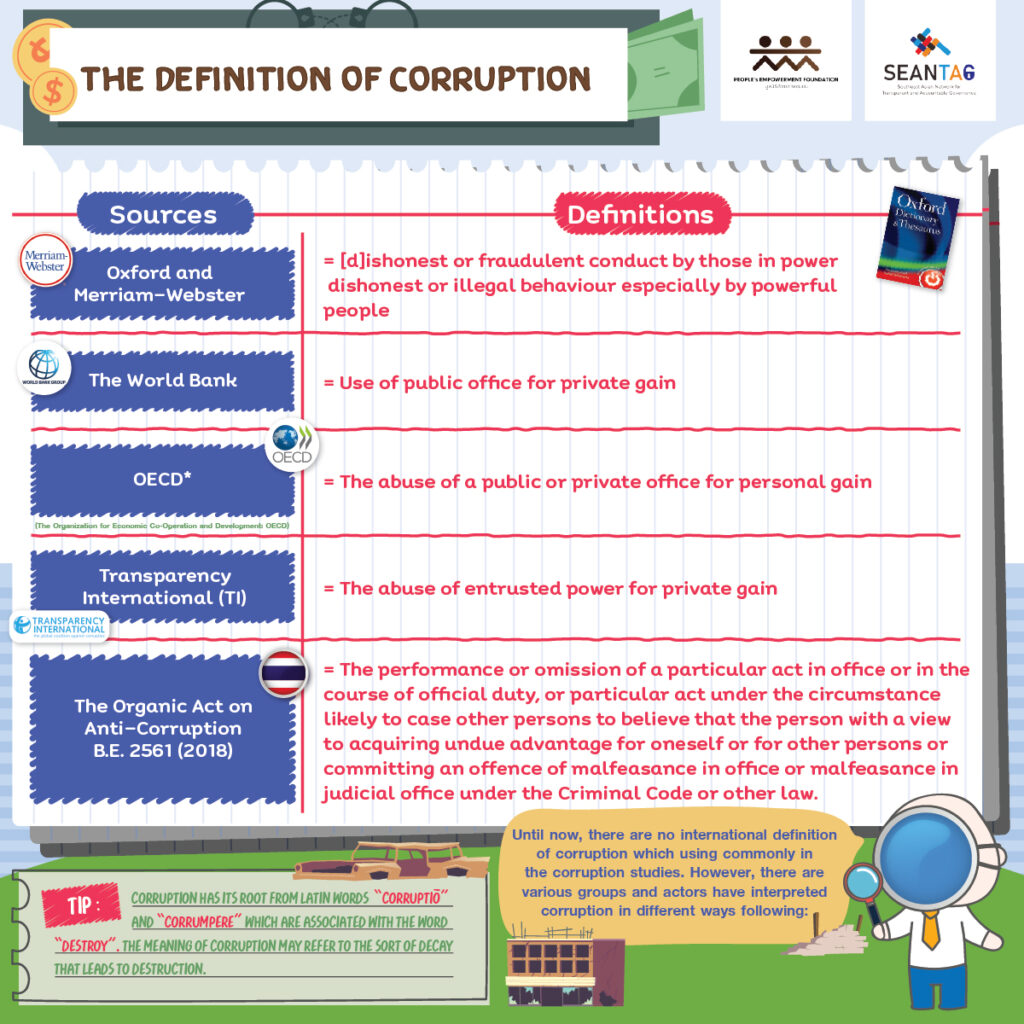
Corruption still lacks a universal definition. As a result, each government and international organization has designed its own definition of corruption. Most definitions tend to describe corruption as “the misuse of power for personal gain by those who should not get benefit.” The minor difference between those definitions is in line with the emphasis on the degree and level of perpetrators which public sectors referring to public officials within power of state. These definitions are similar with definition designed by the World Bank and OECD.
One of the most commonly used definitions comes from Transparency International (TI), which defines corruption as “the abuse of entrusted power for private gain.”
In Thailand, the obvious definition can be found in the Organic Act on Anti-Corruption B.E. 2561 (2018), which defines corruption as misconduct of individuals, particularly focusing on those holding positions within government duties.
What these definitions fail to address is how corruption relates to social structures. Most emphasize individual actions of abusing power for personal benefit but not much touch on aspects of democracy, governance, or broader political, social, and administrative issues.
What About you? How do you define corruption?
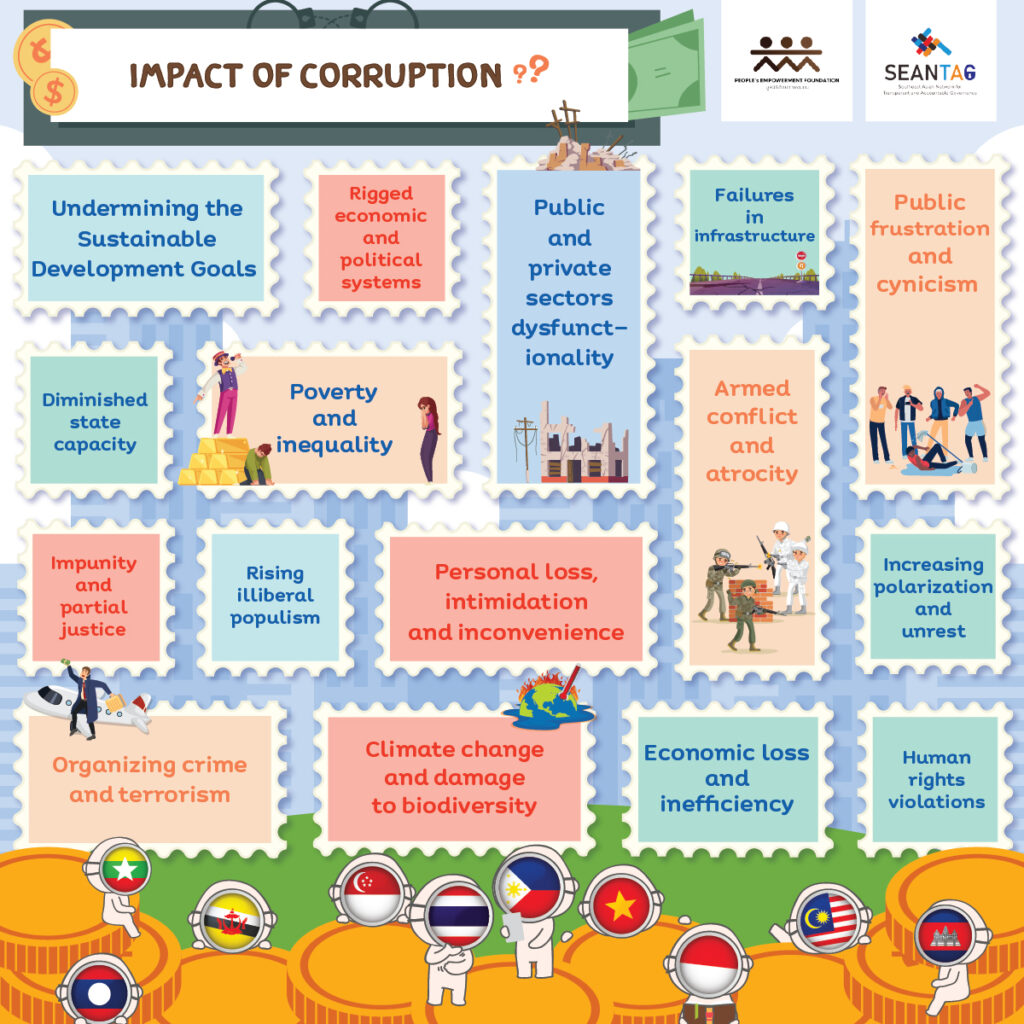
In Thailand, corruption is often brought up in the context of political accusations. However, in reality, corruption has long-term negative impacts across multiple dimensions and directly and indirectly affects everyone in society. These impacts range from issues of human rights, the environment, poverty, impunity, violence and armed conflict, transnational crime, and hatred among human beings.
At first glance, these problems may seem unrelated to corruption. But upon closer consideration, many of the factors leading to these issues stem from neglect or unjust use of power in various contexts.
For example, scammers and call center organizations would not be able to exist if the states took serious action through laws and enforcement. Transnational crimes would not be able to operate cross-border as “gray-zone businesses” if governments cooperated to restrict such actions. In the justice system as well, if these processes were transparent and capable of bringing wrongdoers to justice in accordance with the law, crime rates would have decreased.
What about you? How do you think corruption harms yourself and society?
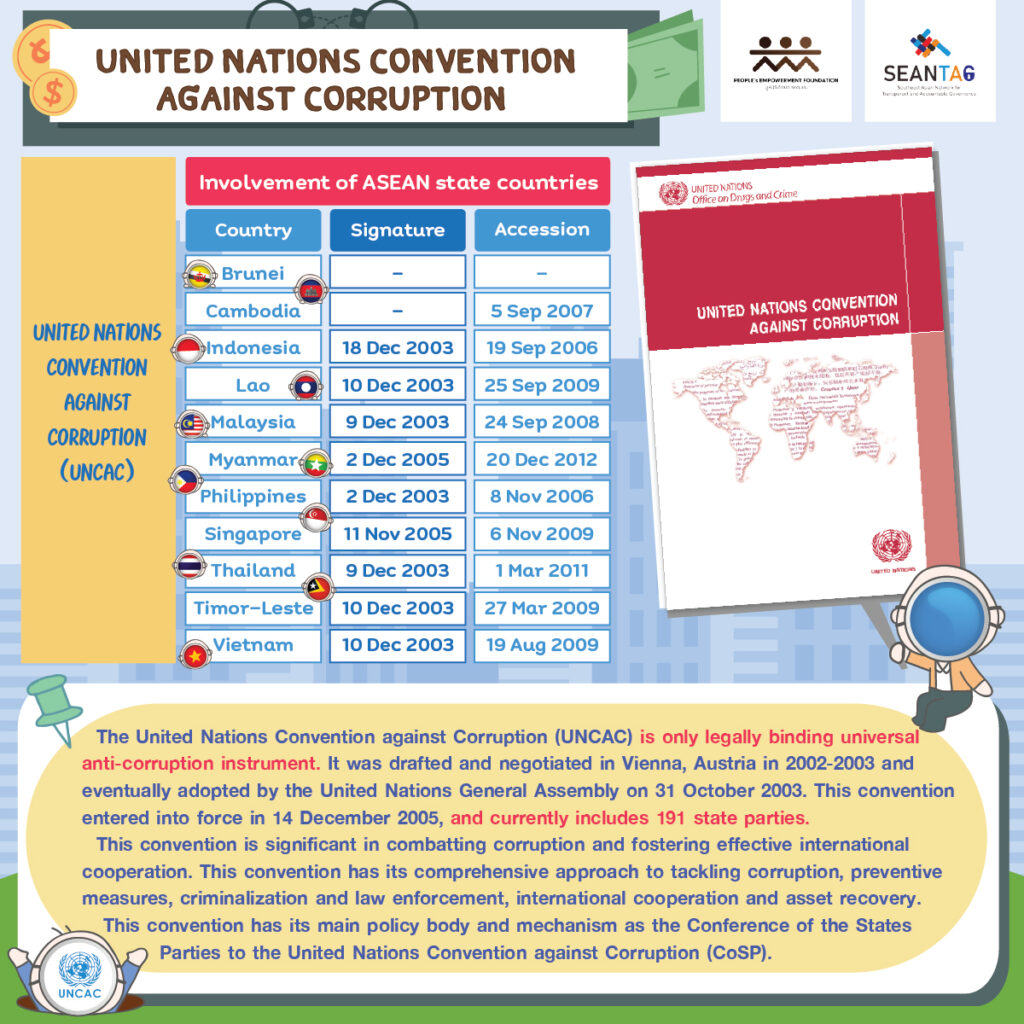
The United Nations Convention against Corruption (UNCAC)
The UNCAC is the only legally binding international treaty in the globe dedicated to combating corruption. Currently, 191 countries globally are parties to the convention (out of the 193 UN member states). The focus is on fostering international cooperation to address corruption at a global level.
It also features a monitoring mechanism for member countries called the “Conference of the States Parties to the United Nations Convention against Corruption (CoSP).” However, this mechanism involves only intergovernmental collaboration and lacks engagement with civil societies, businesses or other organizations.
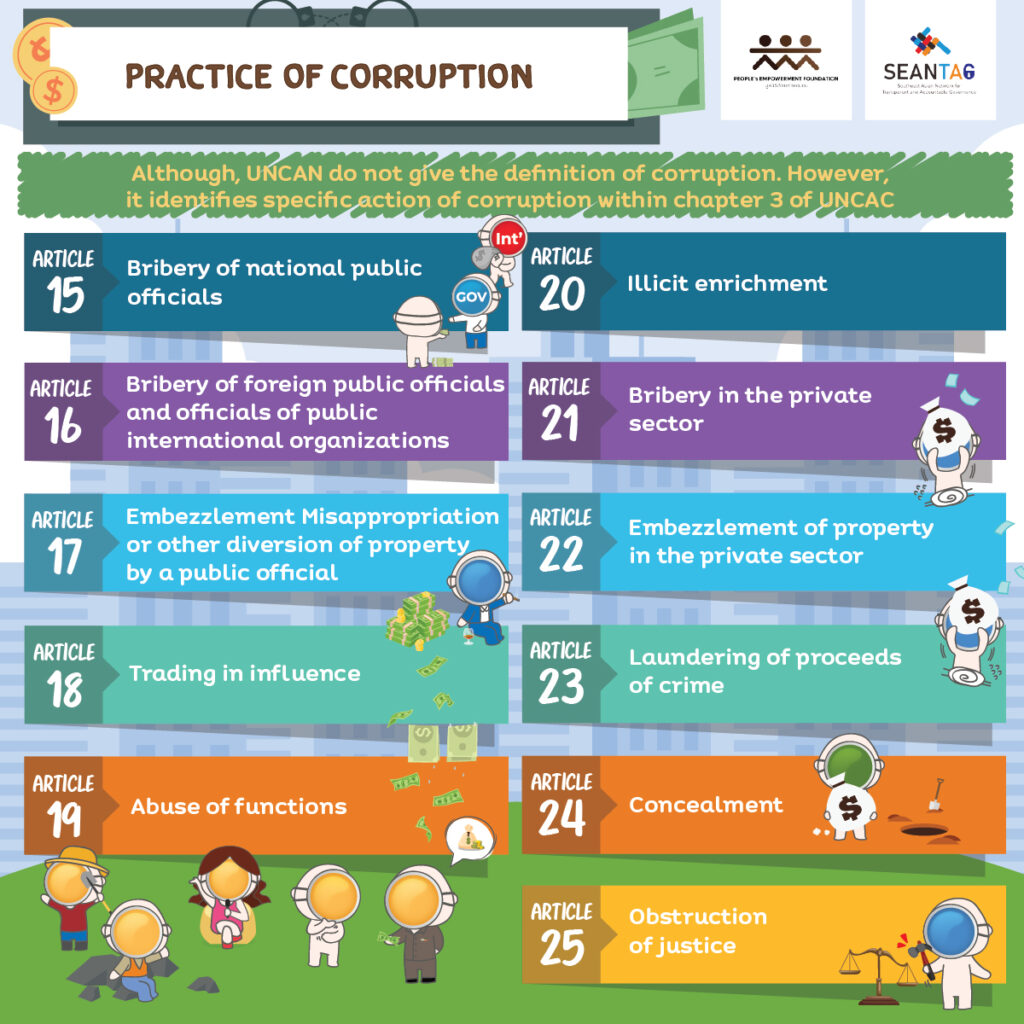
The UNCAC
The UNCAC does not explicitly define “corruption,” but it identifies acts that are considered corruption in Chapter 3 of the convention.
Acts considered corruption as outlined in the convention include:
- Bribery of national public officials (Article 15)
- Bribery of foreign public officials and officials of public international organizations (Article 16)
- Embezzlement, misappropriation or other diversion of property by a public official (Article 17)
- Trading in influence (Article 18)
- Abuse of functions (Article 19)
- Illicit enrichment (Article 20)
- Bribery in the private sector (Article 21)
- Embezzlement of property in the private sector (Article 22)
- Laundering of proceeds of crime (Article 23)
- Concealment (Article 24)
- Obstruction of justice (Article 25)
Once a state party signs the convention, it is expected to enact laws to prevent and control such behavior. However, in practice, while many countries attempt to legislate against corruption, the forms of corruption often evolve, adapting to legal frameworks and becoming more complex and harder to detect.
What do you think should be done to stop these corrupt practices?
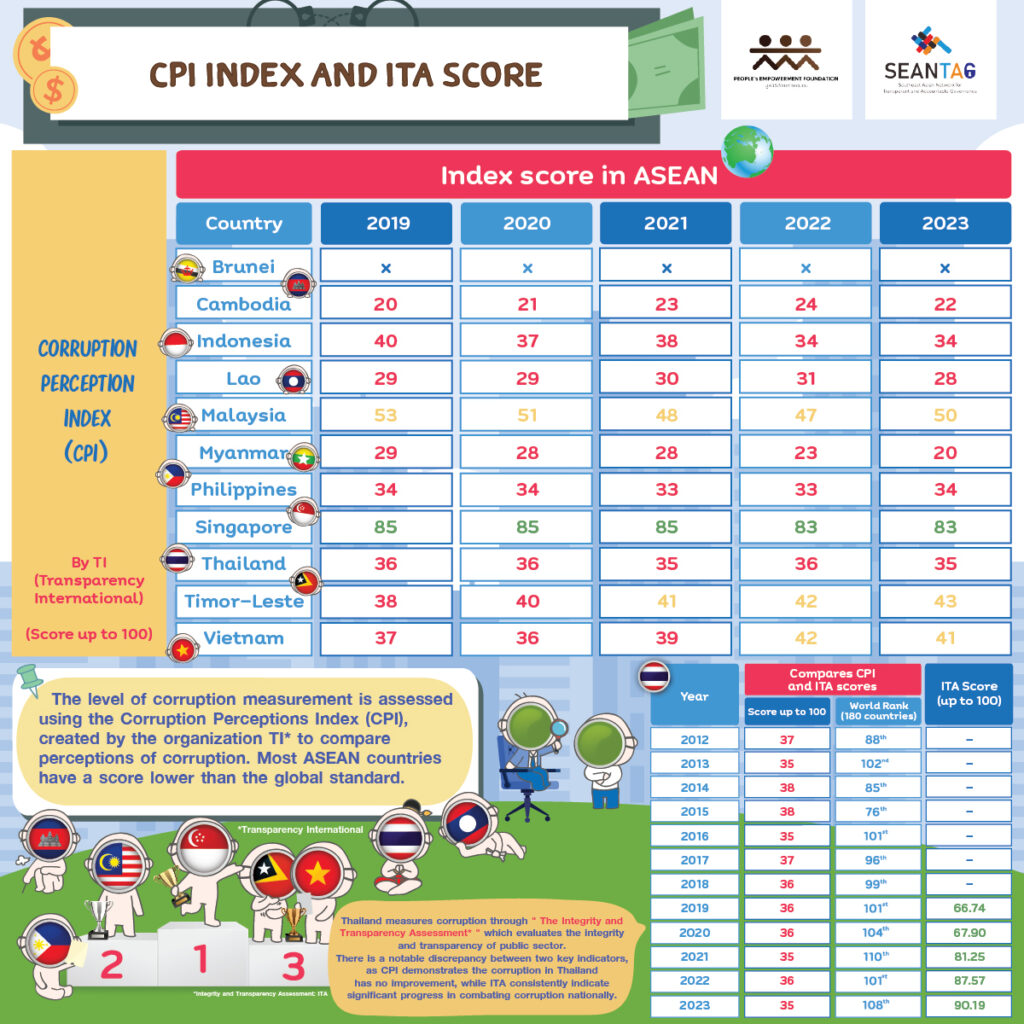
Corruption Assessment
In reality, assessing corruption is “difficult” because corrupt acts are often carried out covertly to avoid detection. Most innovative methods for evaluating corruption rely on “perceptions, awareness, understanding, and feelings” about the overall societal situation regarding corruption.
Transparency International (TI) is a well-known international organization assessing corruption, which evaluates global government corruption through surveys of opinion and expert in each country. This is known as the “Corruption Perceptions Index (CPI).” Most ASEAN countries score below the global average (except Singapore) and tend to struggle to make significant progress in addressing corruption.
In Thailand, the National Anti-Corruption Commission (NACC) has developed a domestic corruption perception measure called the “Integrity and Transparency Assessment (ITA),” which assesses the ethics and transparency of government agencies. A comparison between CPI and ITA scores shows differing results. CPI, evaluated by an international organization, suggests that Thailand’s corruption situation remains stagnant without improvement. However, ITA, assessed domestically, indicates that Thailand’s corruption situation has been improving steadily every year.
What do you think about corruption perception scores? Which assessment is more credible, CPI or ITA?
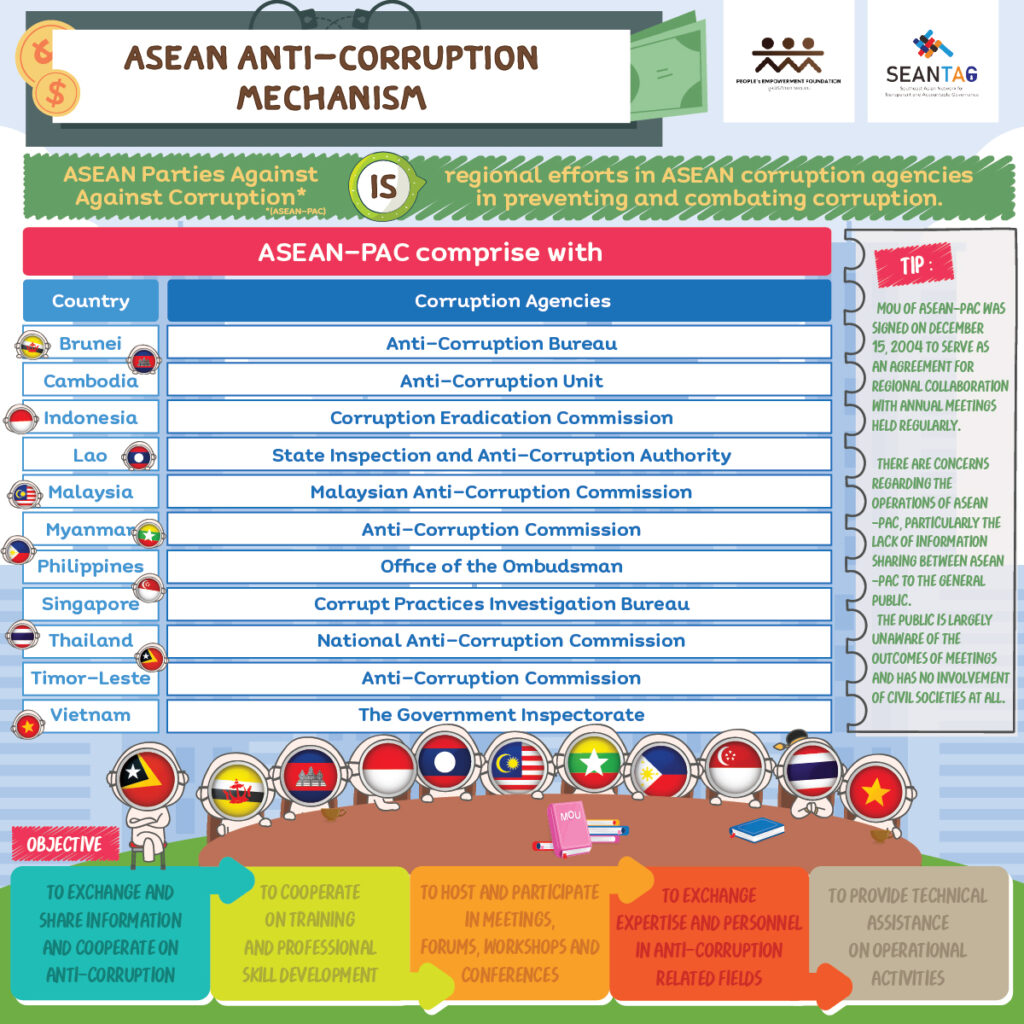
In regional anti-corruption efforts, ASEAN has established cooperation between state agencies called “The Southeast Asia Parties Against Corruption (ASEAN-PAC).” Each designated organization is required to collaborate in driving to combat corruption issues at the regional level. ASEAN-PAC has five objectives as:
- To exchange and share information and collaborate in combating corruption.
- To collaborate in training and professional skill development.
- To exchange expertise and personnel in fields related to anti-corruption efforts.
- To host and participate in conferences, forums, training sessions, and seminars.
- To provide technical assistance in operational activities.
ASEAN-PAC signed a Memorandum of Understanding (MoU) on December 15, 2004, marking the beginning of regional anti-corruption efforts within ASEAN. However, the work of ASEAN-PAC is often criticized for lacking transparency, as the public rarely knows about the plans or outcomes of ASEAN-PAC meetings.
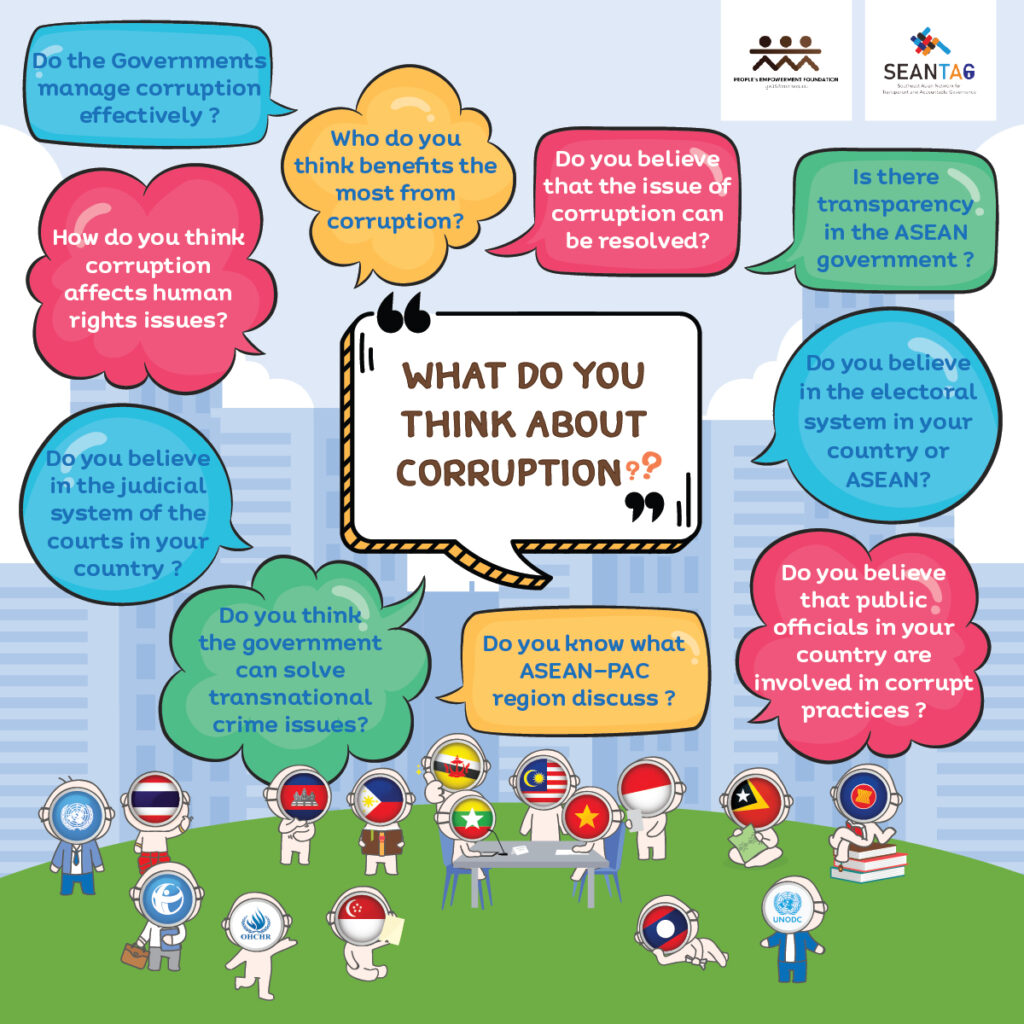
Ultimately, no matter how much we understand corruption, it still affects all of us, whether directly or indirectly. It is evident that the role of the government is crucial in driving efforts to resolve corruption, but the role of everyone else is equally important in solving these problems together.
Finally, let’s share our thoughts on this:
How do we perceive corruption phenomena? How will you answer on these questions?
- Does the government effectively manage corruption?
- Are ASEAN governments transparent and uphold good governance?
- Do you know what the ASEAN-PAC (Southeast Asia Parties Against Corruption) discusses?
- Do you think your country can solve issues like casinos and online call center scams?
- Do you believe the judicial system in your country is fair?
- Do you think the current parliamentary system can address corruption?
- Do government officials in your country engage in extortion or bribery?
- Do you believe corruption can be resolved?
- How do you think corruption impacts human rights issues?
- Who do you think benefits the most from corruption?

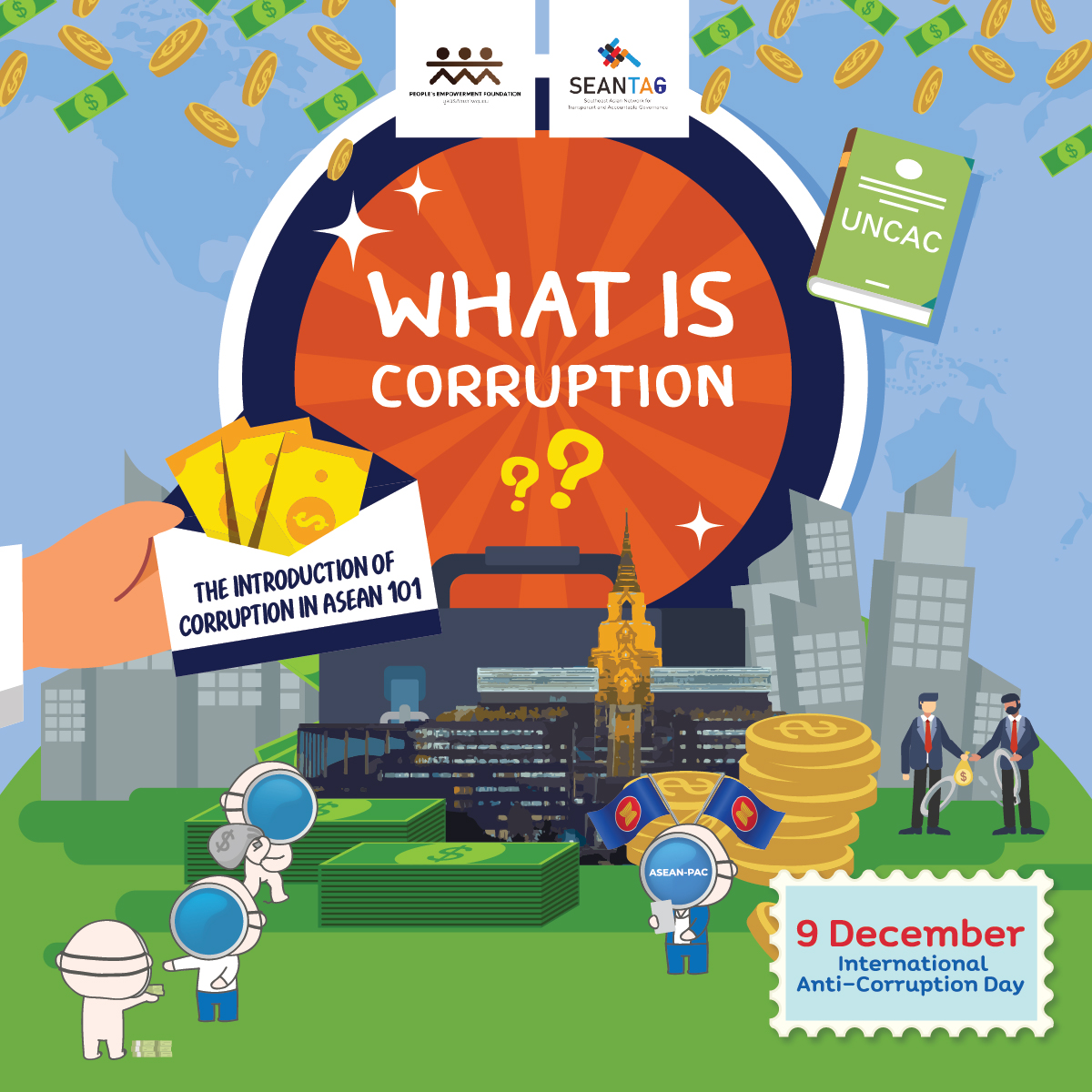
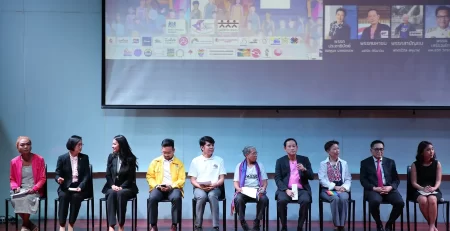
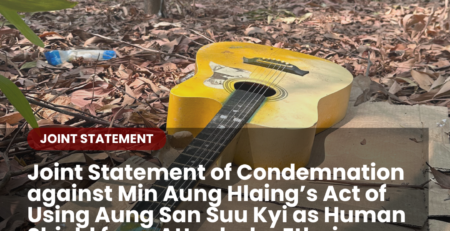
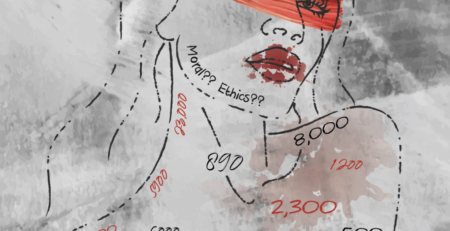
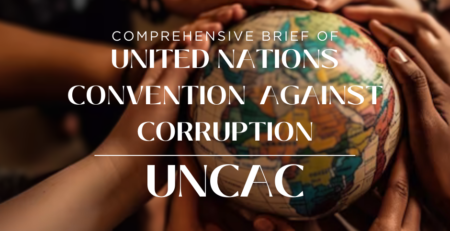
Leave a Reply
You must be logged in to post a comment.